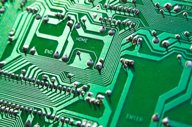5 Ways to Speed up a Slow PC
By admin on Feb 2, 2009 in Windows Vista, Windows XP
 Is your computer unbelievably slow? Does it take several minutes to load Windows and start programs? Is it using up all the RAM (physical memory)?
Is your computer unbelievably slow? Does it take several minutes to load Windows and start programs? Is it using up all the RAM (physical memory)?
If you answered yes to any or all of these questions, it’s time to do something about it.
There are many reasons why a computer slows down. Maybe it is simply old and the processor can’t do all the work any more, and/or there is not enough RAM to handle several applications at the same time. Or it is related to software problems, such as virus and spyware infections.
Fortunately, you can improve the speed of your computer with some simple tweaks and installations. Except for an old computer that cannot handle today’s application speeds, there are always solutions to slow processing times. Here are my 5 choices:
1. First, you should clean your History and delete Temporary Internet Files and Cookies from your browser. In Internet Explorer, you can find this in Tools, Internet Options and Browsing History. Then use a program such as CCleaner to remove all unnecessary files from your PC and clean your registry. Finally, defragment you hard drive (Start, All Programs, Accessories, System Tools, Disk Defragmenter).
2. Another thing you can do is uninstall all unnecessary programs from your PC. Sometimes the PC is overloaded and the processor cannot handle all these programs at the same time. In addition, they can take up space on the hard drive. If you know you are not using some of the programs, it makes sense to uninstall as many as you can. If you have a Norton product installed, I suggest to get rid of it, as it usually takes up resources and slows down the PC. I had several such experiences and Norton was always the culprit. To do this, go to the Control Panel and Add/Remove programs (or Uninstall a Program in Windows Vista) and uninstall the chosen programs from the list.
3. If you don’t want to uninstall programs but you don’t want them all to run at the same time, there is a simple way of turning them off until you start them manually. With the System Configuration Utility, you can select which programs should run during startup and which should stay away. Just go to Start, Run, type msconfig and untick the programs from the Startup tab. By turning off some programs, you are not causing any harm – you are just saying ‘do not start until I start you myself’. This procedure is completely reversible.
4. Viruses and spyware can intrude at any time and mess up your hard drive and operating system. They take up memory, processor speed and block your day-to-day operations. You must always have a working and up-to-date antivirus and antispyware program, which will block/clean all threats. Check out the Resources page and this post for effective virus cleaning programs. Once you scan your hard drive and get rid of any threats, your PC should work faster.
5. I am sure you heard this before, but the most effective way of speeding up your PC is by installing more memory. Most PCs have 4 RAM slots and usually you can install an extra memory module or two. You just have to find out which memory your computer is using. To do this, consult your PC’s manual, motherboard manual or manufacturer’s Web site. Alternatively, type in your PC/motherboard product code in Google and you’ll be able to find detailed specifications about your model, including what type of memory you need. You can also use the Everest program to find this information. Once you obtain the right memory type, you can install it by yourself. First, unplug the power cord from the PC, then open one side of the case and carefully place the module next to the existing one(s) on the motherboard.

Post a Comment